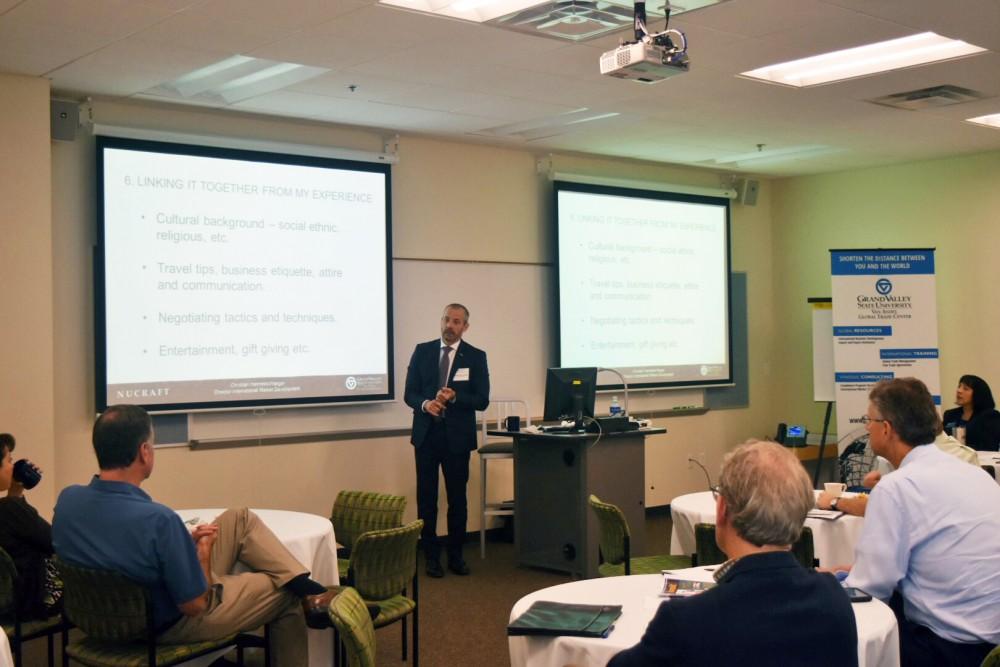Van Andel Global Trade Center talk focuses on international business

Sep 26, 2016
When talking about business – international or otherwise – a steaming cup of coffee can help move the conversation along.
In order to convey various cultural practices and nuances for doing business abroad, the Van Andel Global Trade Center on Grand Valley State University’s Pew Campus started the Coffee and Culture training sessions last Thursday, Sept. 22.
With fresh coffee and a continental breakfast served at each training session, the 8:30 a.m. to 10 a.m. event hosts a different international business professional talking about how they deal with the cultural nuances while traveling internationally.
Sonja Johnson, executive director of the Van Andel Global Trade Center, emphasized the center’s goal of strengthening businesses in the Grand Rapids community by providing international consulting, training and resources.
“Doing business in a particular country, the culture always resonates very well with business practitioners or anybody really that is engaging or entertaining guests coming in or traveling to a foreign country,” she said. “Business etiquette and culture is really important when you get there because it’s hard to right-track a bad path.”
Christian Hannesschlagger, director of international market development for Nucraft Furniture Company, led the first Coffee and Culture training session by focusing on navigating business ventures within the Middle East.
It was, he said, significant to understand a company’s business potential when first looking into conducting business abroad.
“To strengthen your position in the Middle East, to learn more and become aware of the risks and opportunities you will engage within the Middle East region,” he said. “It will prepare your teams better as well as help you make better decisions.”
Ranging from an overall economic overview of the different countries in the Middle East to working with an international partner’s needs, the training session worked through building teams supporting the drive and energy needed in maintain long-term business goals and relationships.
Hannesschlagger emphasized how taking data from the region and building a relationship with business partners and customers will establish a cohesive working environment. It will also create a product that the customer will gladly use and sell to other perspective international customers.
“You need to do the thinking for them,” he said. “Give them the full of whatever you can give them. In the Middle East it works really well if you are open with information.”
Business is not done by just meeting once, he said. Meeting with a purpose, trying to understand how a person things, helped Hannesschlagger maintain business relationships in the Middle East as he talked about the history and made inquiries about what it is like living in their country.
By engaging, being polite and showing real interest, he said, a mutual trust could then be built between business partners.
“Nobody will give time if I don’t add value,” he said.
Increasing competency in being successful worldwide, developing a strategic partnership for international business could lead to a development for international business and activity.
“There is so much international business here in Michigan and I don’t think people are aware of it because people are very humble here and try to keep it quiet, but there is a lot of opportunity there,” Johnson said. “We will continue to work on covering the globe and hopefully find the right niche for the right company at the right time.”

























